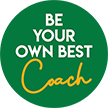In this article we’re going to talk about what being your own best coach means and why it’s so crucial not only to your professional success, but to your overall happiness and satisfaction . . . at work or at home.
But first, let’s set the stage.
Imagine creating a product that is instantly popular, is affordable for your customers, makes you a ton of money, is loved by people worldwide, and changes human experience in big ways.
What characteristics would this product have?
For starters, look at these three examples:
Steve Jobs introduced the iPod that “lets you put your entire music collection in your pocket and listen to it wherever you go.”
As Jobs promised, the iPod ushered in new technology and experiences that forever changed how we listen to music.The 7‑Eleven brand of convenience stores became an icon in American culture and the largest convenience retailer worldwide.
Initially open from early morning (7:00 am) until late at night (11:00 pm), 7-Eleven stores were the first to operate 24 hours a day after one 7-Eleven in Austin, Texas was flooded by customers following a University of Texas football game. The store stayed open all night as customers kept streaming in.
7-Eleven’s philosophy? “Give the customers what they want, when and where they want it.”
(7-Eleven became a 24-7 business by capitalizing on a happy accident, but we’d be naïve not to add that all-night businesses certainly existed before. It’s just that other all-night businesses were associated with illicit activities or activities that most communities considered unwholesome and not desirable.)Until recently, Burger King held the #2 spot for fast-food restaurants in the US and #6 worldwide.
It’s slogan, “Have it your way” has been a driving force in Burger King’s marketing philosophy and demonstrated the critical importance of tailoring products to each individual's tastes and preferences.
With menus that were simple, easy to read, and offered flexibility over the “have-it-my-way-and-no-substitutions” policies of competitors, Burger King offered customers just enough options to satisfy without overwhelming them with too many choices. And their menu items were affordable.
More recently, BK updated its motto to “Be Your Way,” to remind people that “can and should live how they want anytime . . . and it’s our differences that make us individuals instead of robots.”
What makes these products so super successful? Six crucial factors:
Convenience (any time)
Flexibility (any way)
Portability (any place)
Personalized (tailored just for you)
Appropriate (in just the right amount in the right way)
Affordable (you have the money to pay for them)
We’ve only scratched the surface of products we all love, buy, and depend on today. But if anything, the qualities of convenience, flexibility, portability, personalization, appropriateness, and affordability are often at the top of the list for what we look for.
Right?
Let’s change focus now and think about service products–the kind of service products we use to help us do better in our lives. Whether it’s to address on-the-job performance or something in our personal lives, most of us have used or do use the services of some kind of professional helper.
What do we mean?
Well, having someone who has our back and is instrumental in helping us is nothing new. In fact, being taught, guided, advised, mentored, and even directed begins with our parents when we’re babies.
The first professionals we usually encounter are teachers at daycare or when we start school. Then, the group of professional helpers extends to coaches, scout leaders, and others tasked with helping us grow and develop.
Now, reflect back on the qualities that contributed to the popularity and ubiquity of the iPod, 7-Eleven, and Burger King. They are the same qualities our early-life helpers had: around when and where we needed them, in the amount and way that we needed them, focused on us and our unique needs, and totally free or super affordable.
In adulthood and depending on our interests and needs, most of us continue to benefit from the help of professionals including:
Consultants
Mentors
Advisors
Coaches
Therapists
Guides
. . . or even free (and hopefully, skilled) help from family and friends.
But here’s the catch: No matter how wonderful any of these helpers are, when you compare them with the characteristics that have made products like the iPod, 7-Eleven, Burger King so essential in our lives, they may fall short.
Why?
Just ask yourself what you do when:
It’s a holiday weekend and you’re working on a proposal you must present to an important client on Monday morning, but you hit a brick wall . . . and your consultant is on a ski vacation?
Not availableYou search high and low for just the right person to help you address some issues that have been weighing on you for a long time . . . but their office is over an hour away from you (when traffic is good) and they don’t do zoom?
Not convenient
You’ve contracted with a coach to help with accountability as you train for your first marathon. A few weeks before the race, they recommend that you continue coaching for another 6 months to dig deep into underlying issues that may be keeping you from realizing your full potential?
Not appropriate
Your mentor insists that you don’t understand the full picture of the issue you’re struggling with but because of their expertise, they know exactly what you should be doing . . . even when you’ve told them that their “solution” doesn’t align with your interests nor values.
Not personalizedYour partner’s therapist is going on vacation and gave your partner a long list of self-help books that might help them while the therapist is away. Timing works out great because you and your partner are also going away during that time. Unfortunately, your partner doesn’t “do” digital and insists on taking the physical copies of the books even though you will have to pay an expensive extra baggage fee.
Not portableThe very expensive professional who came highly recommended tells you that you need at least a year of their services and they only work on a non-negotiable annual-contract basis?
Not affordable
If any of those sound the least bit familiar, they should because these are common situations people run into everyday.
That’s not to say that professional helpers aren’t valuable and helpful. They are! We need them! And, for many clients, they open the door to true transformation.
But challenges with access, scheduling, agendas (yours . . . or theirs), boundary issues, lack of focus, appropriateness, absence of solid methods to track progress, and the actual financial cost are real and present problems.
And one more thing!
Michael Maccoby, author of books and articles published by Harvard Business School Press, makes it clear that coaches (and other similar helping professionals) have an economic incentive to cultivate dependency in their clients and ignore the problem of dependency, thus creating a potential conflict of interest.
It’s a pretty big temptation not to want to lose a paying customer, right?
So what’s the solution?
It’s not to throw the baby out with the bathwater and never consider the value of professionals.
The solution is ”both-and.”
In other words, how do you capitalize on the benefits professionals offer you while avoiding the problems of unavailable, inconvenient, inflexible, inappropriate, irrelevant, and unaffordable?
Remember how we said that from the moment we’re born, we get taught, guided, directed, coached, and mentored?
Probably among the earliest things babies who are beginning to move around and eat solid food throughout the world hear–regardless of language, setting, family structure, or culture–is “Hot! Hot!”
As babies take their first steps or reach out to feed themselves, we protect them from harm by warning them not to taste or touch hot food, hot water in the bath, hot stoves, hot heaters, etc.
Exclaiming “hot, hot” is how we teach little ones to stay safe.
What happens next is even more important because as these little people play by themselves you can hear them repeating the words “hot! hot!” and pulling away their hands from whatever they’re playing with.
They are internalizing these key life lessons.
That’s ultimately what all good parenting, teaching, mentoring, or coaching is about: helping people (even babies) internalize the crucial lessons we share with them so they absorb what we offer, adapt it for their own unique needs, and eventually own the learning as their own.
And that is also the solution for today’s challenge for grownups.
The solution is not only to find professionals who are available, convenient, flexible, affordable, etc.
It's also to internalize and operationalize the wisdom we receive from them.
To do your best–to thrive–you have to absorb, adapt, and own what you learn so that it works for you in exactly the way you need.
That’s what being your own best coach is all about.
Being your own best coach is developing the skills to:
Define the outcome you want
Chart a course of action
Manage the internal, social, and external factors that support you
Pull the trigger on a process that helps you carry out the action
Create Your Own Million-Dollar Product
Being your own best coach is like creating your own million dollar product.
It’s available to you when you need it, where you need it, in the way you need it, in the amount you need it, and how you need it.
It’s the ultimate in convenience, flexibility, portability, personalization, appropriateness, and affordability.
So what’s not to love about that?
As you think about self-coaching and your own capacity to coach yourself, ask yourself three questions:
How do you absorb, adapt, and own your own learning?
How do you channel the wisdom of others and make it part of your life so you can access it when, where, and how it works just right for you?
What’s a time in the past in which you felt proud to be able to apply what you learned in ways that were uniquely yours?
Then give yourself a pat on the back for noticing the important role self-coach may already have played in your life.


